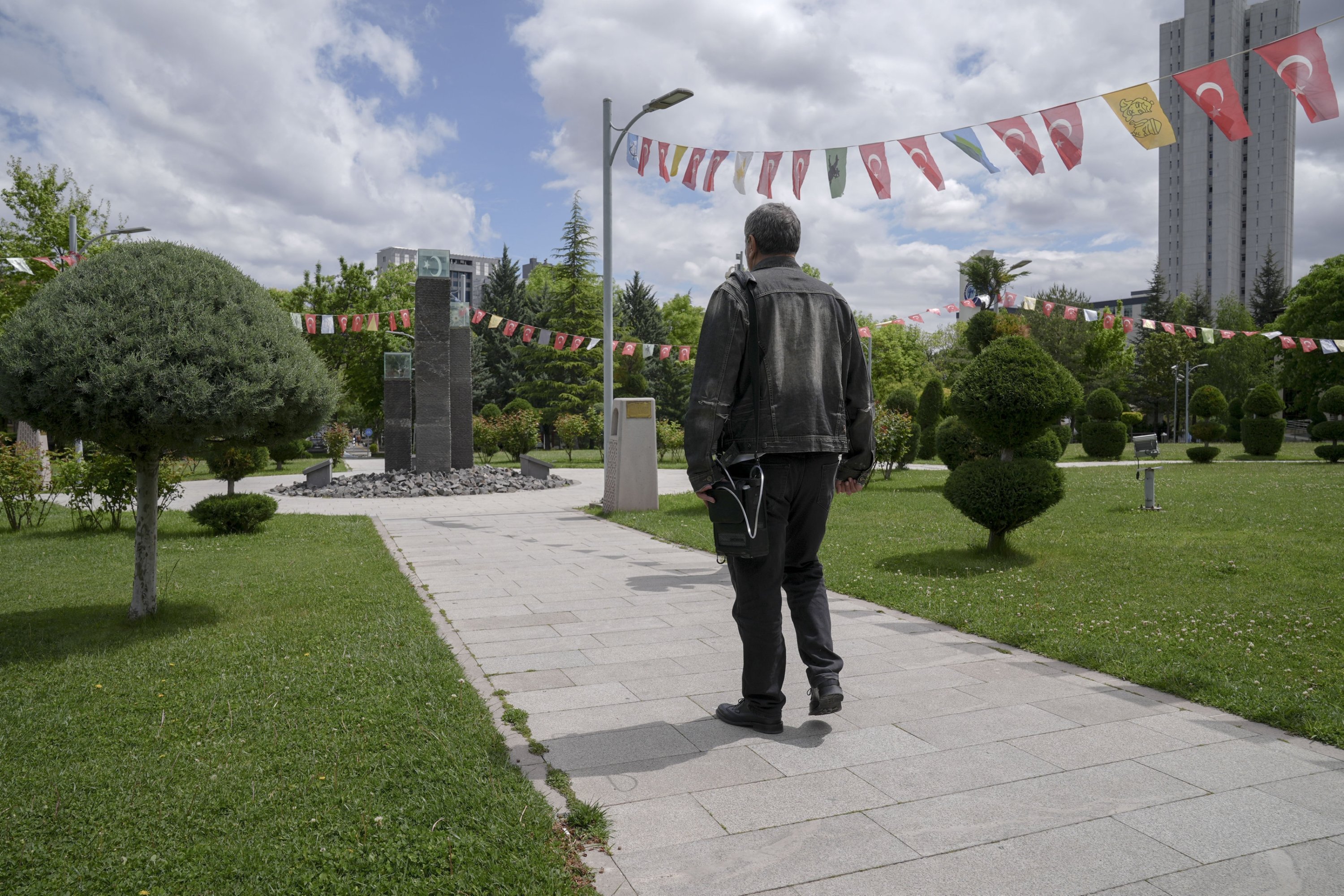© Turkuvaz Haberleşme ve Yayıncılık 2025
Aykut Inciler, a 60-year-old resident of Ankara, Türkiye, has been coping with pulmonary hypertension, a rare form of high blood pressure, for three years. Due to his lung's inability to function properly, he relies on an artificial lung device carried in his bag.
Inciler first sought medical attention due to a decrease in oxygen levels that began in 2009. Following examinations, he was diagnosed with pulmonary hypertension.
Speaking to an Anadolu Agency (AA) correspondent, Inciler stated that he started to suffer from shortness of breath even from small movements and said: "I first noticed the difficulties I had in breathing when I bent down and straightened up to take the television remote control. Then I was experiencing shortness of breath while tying shoes, and I noticed shortness of breath in small movements. After the examinations, the diagnosis was made."
Inceler explained that there is no cure for his disease and that drug treatment is necessary to delay its progression.
Stating that he has been carrying the artificial lung in his bag for three years, Inciler said that he was self-conscious due to the looks of people at first, but he has gotten used to it over time.
Inciler stressed that many people need new organs to live, so organ donation is of great importance.
Stating that he has to use the artificial lung device 24 hours a day, İnciler said: "When it is not enough, there are bigger support devices at home, I switch to them, I have to use it constantly. Organ transplantation is not possible because I have a heart problem. Organs can't be transplanted for such patients.''
''The public is uneducated about organ donation. Please donate your organs. One person can save an average of 11 people with their organs. Organ donation is very important for this disease, it is the only treatment."
Inciler stated that his disease has made his life more difficult over time. He feels breathless every time he moves and has difficulty walking.
Pointing out that the disease progresses quickly, Inciler said: "The disease is getting worse and worse. Sometimes I can't walk at all. I am always waiting for a wheelchair in the hospital. I want to draw attention to organ donations. I want the number of transplant centers to increase, some of them are being closed. I wish there were more transplant centers. This disease can also be passed on through genes. There is nothing in my children at the moment, but we are also following up with them."

Inciler emphasized that he realized how important oxygen is after being diagnosed with the disease, adding: "Every breath we take is very important. I did not know that breathing is so important.''
''Look, we breathe but we are not aware of it. I carry my lungs with me. This breath is important to me, and I have no other choice. Unfortunately, those who do not experience carrying their lungs with them do not know. I hope there will be awareness of organ donation."
Cardiology specialist Dr. Serdar Kula noted that pulmonary hypertension is one of the most dangerous of the rare and incurable fatal diseases in the world.
Noting that patients apply to health institutions with complaints such as shortness of breath, rapid fatigue, swelling and bruising in the feet, Kula said: "It is not a disease with a definite cure, we have limited treatments. The final treatment is lung transplantation, which is limited in our country as in the whole world.''
''There is no age limit in the emergence of this disease, it can be seen from newborns. This is what is particularly traumatic for parents. The child is perfectly healthy, has no health problems, and suddenly the symptoms of the disease appear at any age."
